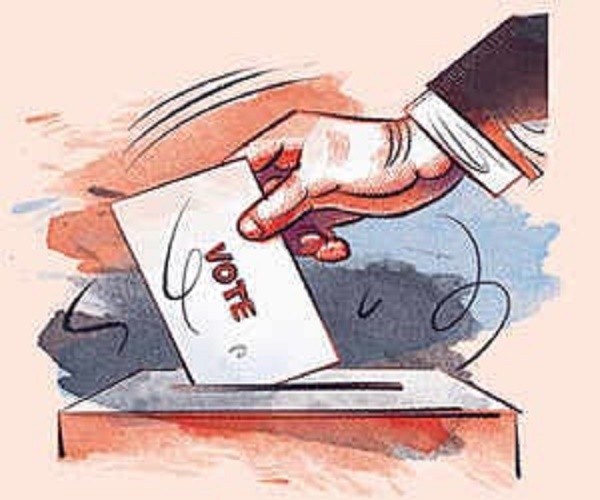On December 18, 2017, Union Law Minister Ravi Shankar Prasad introduced The Representation Of The People (Amendment) Bill, 2017, in the Lok Sabha. As a two-page Bill, it is fairly short in comparison to bills running into nearly a hundred pages. The brevity of the Bill may even tempt legislators to dismiss it as a mere technical amendment.
However, this small document, once passed, can significantly alter the manner in which electoral politics is carried out in India, as it provides legal sanction to ‘proxy voting’ for elections.
The timeline
Writ petitions filed by NRIs in 2013 seeking the right to vote through an overseas electoral process led to the Supreme Court’s order directing the Election Commission of India (EC) to constitute a committee to explore the options of overseas voting for NRIs.
In October, 2014, the committee submitted its report. The report ruled out the feasibility of allowing physical voting in embassies because of the inability of the missions abroad to deal with EVMs for over 500 constitutes in one or few sites due to logistical issues. It ruled out voting through an online website on the ground that hackers and viruses could misuse the interface and rig the elections. In its conclusion, the report recommended the usage of e-postal ballots as well as proxy voting – the latter being the most doable method, according to the committee.
The e-postal ballot system, according to the report, is one in which a registered NRI voter will be sent a blank ballot paper by email and the voter can mark the ballot and send it back by post. In the view of the committee, this process is relatively safe compared to the risks of manipulation and rigging involved with other options, including a two-way e-ballot system, whereby the ballot may be intercepted through an online mechanism.
Proxy voting is a process whereby a NRI can nominate an individual in the constituency (the address as mentioned in the passport of NRI), to vote on his or her behalf. The former chief election commissioner (CEC), Dr. S.Y Quraishi in his article has succinctly explained the problems with a proxy voting system. In addition to these logistical issues, it is important to test the proposed bill from a law and policy based perspective.
The right to vote is not a fundamental right, although the decision to vote for a candidate has been held as an exercise of the right to expression under Article 19(1)(a) of the constitution of India. In Kuldip Nayar v Union of India, the constitutional bench of the Supreme Court, while distinguishing the elections to the Rajya Sabha, from the elections to the Lok Sabha and the assemblies, held that the secrecy of the ballot is the basis for constituency-based representation. The court expressly stated that “secrecy is a must” in a representative democracy.
Similarly, in S. Raghbir Singh Gill v S. Gurcharan Singh Tohra&Ors, the Supreme Court held that “Secrecy of ballot can be appropriately styled as a postulate of constitutional democracy.” The landmark judgment in Keshavananda Bharati v State of Kerala led to the formation of the ‘Basic Structure Doctrine’, whereby parliament cannot make any law, including constitutional amendments, in contravention of the essential features of the constitution. In numerous judicial pronouncements, it has been established that ‘free and fair elections’ is a part of the Basic Structure.
In PUCL v Union of India, the Supreme Court held that the secrecy of the ballot is an essential feature of free and fair elections, which implies that secrecy of the ballot is also covered by the ambit of the Basic Structure Doctrine.
The challenges
Proxy vote in essence goes against the very concept of a secret ballot as one has to disclose his or her preference to another individual, who in turn has to vote on his or her behalf. There is no guarantee that the proxy will vote for the candidate preferred by the overeseas voter, thereby vitiating the object of free and fair elections. Therefore, the proposed legislation can be challenged as being ultra vires to the constitution.
While it is true that the tyranny of distance prevents NRIs from effectively participating in elections in India, it must be kept in mind that this is also the same reasons as to why many internal migrants in our country are unable to exercise their franchise in their respective constituencies. Since the reasons preventing both these classes from participating in elections is the same, and since there is no intelligible differentia to classify these two groups differently, vesting proxy rights on one and not with the other is in effect a violation of the fundamental right to equality before the law under Article 14 of the constitution.
Under the proposed Bill, a person moving from Kochi to Dubai can continue to cast his or her vote in Kochi, whereas a person who moves from his or her village in Uttar Pradesh to Delhi to seek greater economic opportunities is barred from casting his vote in his or her village. Apart from the legal objections, the government must contemplate the moral aspects involved for the proposed differential treatment.
Proxy voting is highly susceptible electoral fraud, as it purely depends on the trust of a third party. While there are countries which allow the process of proxy voting, the economic inequalities suffered by many overseas Indians cannot be compared with overseas citizens of other countries. A large number of overseas Indians are subjected to harsh working environments, particularly in the Middle East. Employers with vested interests can and coerce these workers to issue proxies to certain individuals to push the agenda of such vested interests. Furthermore, it would be impossible for the EC to implement the Model Code of Conduct outside the territorial jurisdiction of India.
In the United Kingdom, the use of proxy voting led to instance of ‘granny farming’, whereby the authorisation to proxies from senior citizens were obtained, without them even realising it. In India, with bribing of voters remaining an issue which the EC still grapples with, proxy voting may increase this malaise, since the candidate can obtain two votes from an individual through the payment of a bribe.
A voter will only delegate the right to vote to a proxy, if such proxy in that particular constituency has the trust and confidence of the voter. Therefore, in the absence of such a relationship, the NRI is left disenfranchised. This hurdle can be remedied by providing the additional option of an e-postal ballot, leaving it to the discretion of the voter, as recommended by the committee. This option is however ruled out by the language used in clause 3 (ii) of the proposed Bill, which states that overseas citizens can “vote either in person or by proxy and not in any other manner”. Only four countries, namely, Mauritius, Nauru, Togo and Vanuatu restricts the option of overseas citizens to proxy voting, whereas most other countries provide a mixed procedure.
The preparation of electoral rolls in a country of 1.3 billion people is an extremely complicated matter. A major hurdle in the preparation of these rolls, is the removal of ‘Absentee, Duplicate and Shifted Voters’, (ADS voters). As the name suggests, these are persons who may have their names in two constituencies owing to change in residence, or voters who are no longer alive or present in the constituency. The presence of ADS voters can also be a source of electoral fraud. Former CEC, Shri N. Gopalaswami pointed out that in the 2007 Gujarat elections, in nearly 31 constituencies, 10% of the electoral rolls were ADS voters. The EC identified a total of 28.63 lakh ASD voters, which is in excess of many margins of electoral victories. When the EC of India, with its full machinery, finds it difficult to eliminate ADS voters from electoral rolls, one wonders how Indian missions, with their limited man-power and resources, can undertake such an exercise among overseas citizens of India.
The election machinery and the functioning of the EC as a whole is a testimony to our ability to build institutions, despite the major challenges it may face. Any changes to this carefully built edifice, must be tempered by experimentation on a small scale, before adopting any the change or reform on a larger scale.
For instance, before EVMs were adopted at the national level, the EC conducted a pilot project by using it for a by-poll in Kerala in 1982. Similarly, the report of the committee has recommended experimenting with proxy voting and e-postal ballots in a few districts, before adopting it for the nation as a whole.
Therefore, it will be unwise to enable proxy-voting across the country through the enactment of this Bill, in a bid to curry favour with the NRIs before the 2019 elections.
A wide section of the Indian diaspora, may echo the efforts of the government in providing proxy voting, however, the true mark of statecraft is the ability to formulate policy based on logical and cogent analysis and objectives, instead of tinkering with the electoral edifice for short-term political gains. #KhabarLive







